
Survey reveals continued inequities and barriers
A phone survey in Spanish of 1,323 Parent Institute for Quality Education (PIQE) families highlights continued disparities in equitable access to educational instruction time and marked increases in stress.

The Fall 2020 phone survey conducted in October follows PIQE’s initial survey in Spring 2020 to better assess how parents and families adapted and where critical areas of need remain as the pandemic continues to evolve. The Fall 2020 survey was divided into four sections focused on distance learning, digital divide, mental health and essential needs from three PIQE regions: Northern California (15%), Central Valley (33%) and Southern California (51%). Download Full Report
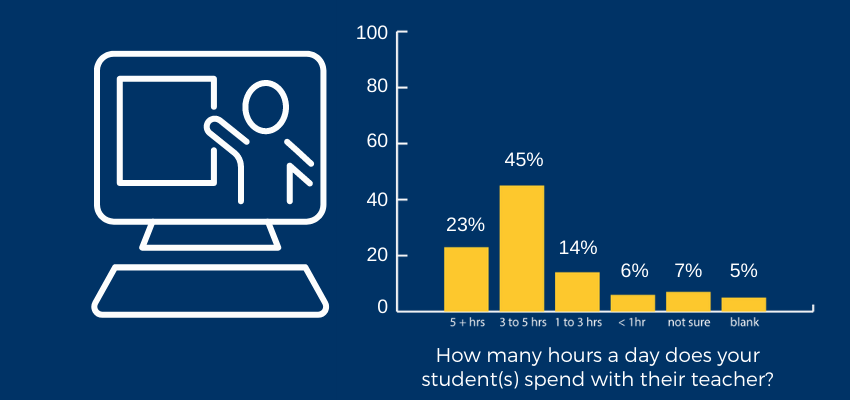
Distance Learning
The new school year began online with families learning new vocabulary and new technology so children could access distance learning.
Thirty-two percent of respondents indicated their students spend less than three hours with teachers with 45% spending between three to five hours per school day.
Digital Divide
PIQE continues to support families during the pandemic by providing digital skills training and bridging families to vital community and mental health resources. Digital literacy is a key component of the adapted curriculum to assist families’ efforts to support their students with distance learning as well as accessing basic needs services.
While the majority (94%) of Fall 2020 respondents said the school provided the appropriate equipment for online learning, 17% still do not have reliable internet/Wi-Fi at home with Central California showing the largest disparity at 21%.
Beyond the need to access reliable internet, having an email address is essential for families to engage and connect. Statewide, 1 in 5 do not have an email address, and in Central California, nearly 30% do not.

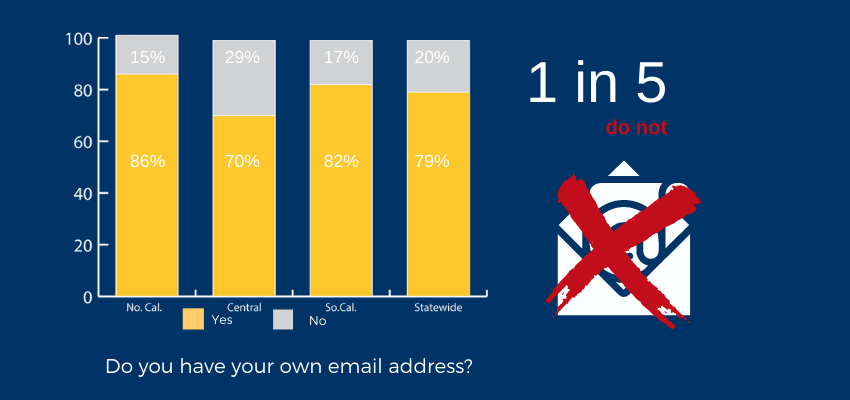
Nearly 50% of respondents stated that they do not know how to receive medical services on-line or by phone with the greatest disparity in Central California at 52%.
The Spring 2020 phone survey asked a similar question, “Do you know where to go for medical assistance?” Eighty-six percent of respondents in Spring 2020 said yes.
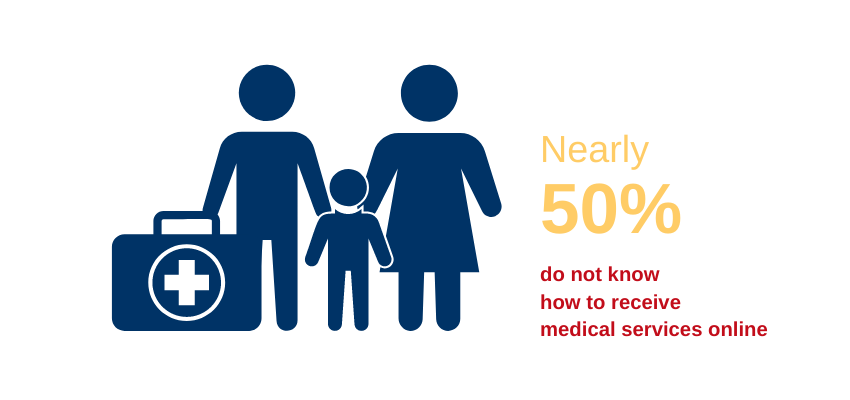
Mental Health
The sustained and evolving crisis has impacted the mental health of both adults and children. Continued economic stressors, restrictions on social gathering, increased infection rates and limited access to COVID testing added increased stress that has been documented through multiple studies. The following questions address the social-emotional needs of children, and the child and parental stress.
A majority (63%) of respondents indicated that they were concerned about their children’s emotional needs.
Thirty-six percent indicated that their children’s schools were providing resources, while 35% said they were not provided resources.
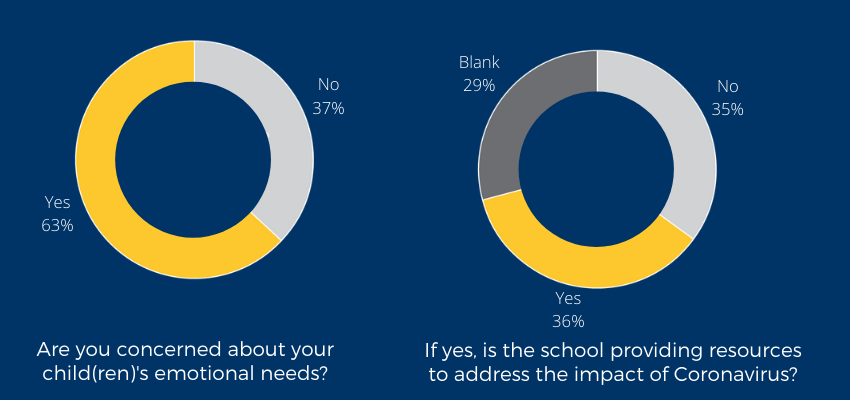
Essential Needs
Throughout the pandemic, meeting basic needs, especially food and housing, has been challenging for many families. Schools have often been critical to providing a consistent place for children and families to access food during the pandemic.
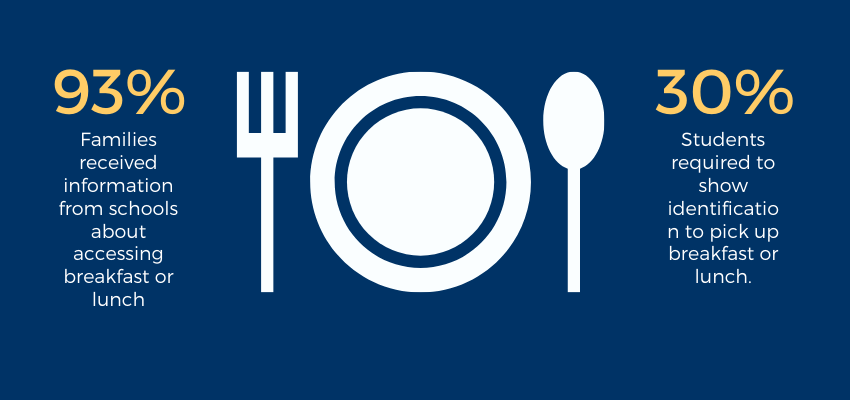
Respondents were asked about their children’s food access. Ninety-three percent of respondents said their families received information from the school about accessing breakfast or lunch. Nearly 30% of respondents said their children were required to show identification to pick up breakfast or lunch.
Next Steps
Critical to a family’s ability to support their child’s learning at home is having a relationship with their teacher(s) that is based on respect and trust; where two-way communication is supported, open and solution-oriented. This is true for distance learning but should also be considered as schools prepare to reopen. The PIQE’s Fall 2020 survey reveals that families and their students – even when those that participated were connected to some supports through PIQE parent workshops – continue to face inequitable access to educational opportunities despite concerted efforts to provide more equipment and additional internet access. A holistic response moving forward needs to include:
-
training to develop digital literacy skills for the adults supporting online learning at home
-
extended school year and summer months for more learning opportunities with teachers
-
access to basic needs like nutritious food, housing and employment supports
-
mental health supports for both adults and children to respond to mental health needs
Special thanks to our partners for their input and collaboration: The Education Trust-West, Civil Rights Project at UCLA, Californians Together, Public Advocates, American Civil Liberties Union (ACLU) San Diego and Imperial Counties, and The Children’s Partnership.
